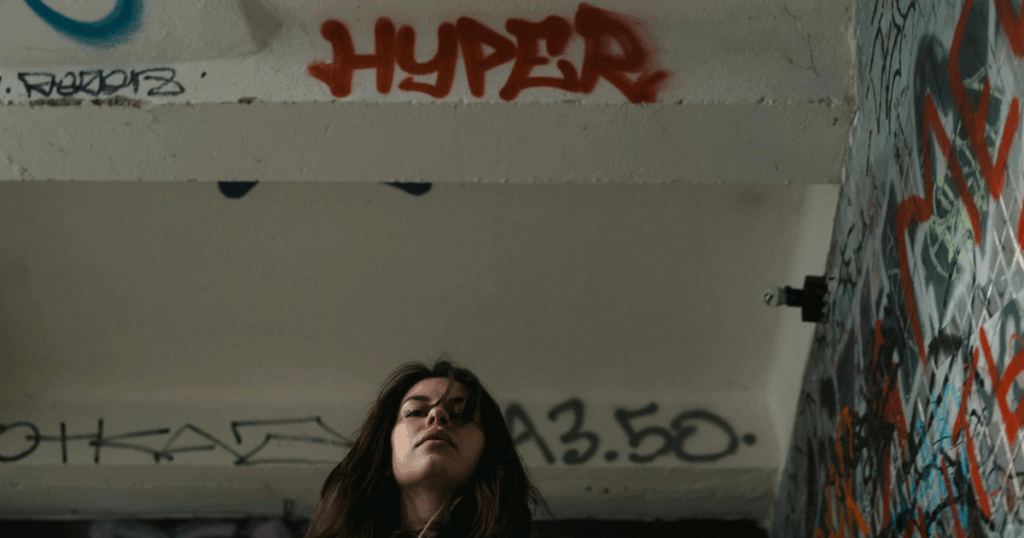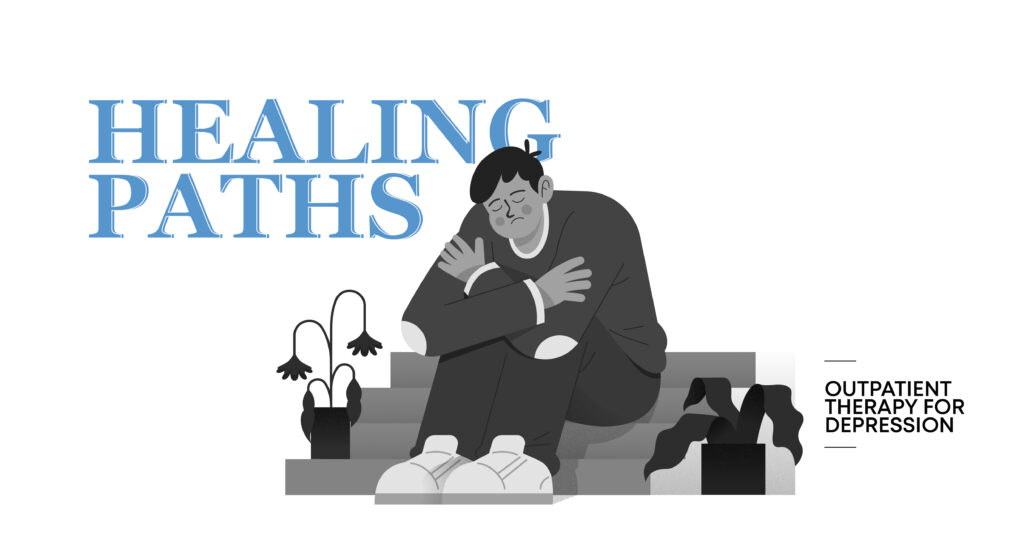There’s quiet courage in asking for help. Especially when your head feels like a foggy, heavy room. One where every step takes more effort. If you’ve carried that weight, you’re not alone. Depression may not show on the outside, but inside? It’s loud.
Outpatient therapy for depression can help. Unlike inpatient care, outpatient therapy lets you keep going to school. You can spend time with friends. Sleep in your own bed, and still get real, structured support. And for many teens, this flexibility matters most.
Let’s talk about what that path can look like. What choices exist? Also, how healing might feel a little better than you thought. Or, at least, like a solid place to begin.
Understanding Mental Health Treatment
Before we dive into specific therapies, let’s back up a little. Mental health treatment isn’t one-size-fits-all. Everyone’s brain works a little differently. Depression doesn’t always follow a neat script. One person might feel numb. Another might cry often. And someone else might just stop showing up to things.
Outpatient care meets you where you are. It might include regular therapy sessions. It can also include medication management or group support. Or a mix of all three. But the core idea? You’re not stuck in a hospital or locked into some rigid routine.
Here’s what outpatient mental health treatment can include:
- Individual therapy: One-on-one chats with a licensed therapist who actually listens
- Group therapy: You’ll realize you’re not the only one feeling like this
- Medication check-ins: With a psychiatrist or doctor
- Family therapy: Helps parents or caregivers understand what’s going on
- School coordination: The therapist might actually talk to your teacher if you’re okay with that.

The goal isn’t to fix you. You’re not broken. It’s to support you. Help you manage the hard days. And give you real tools that work when life gets rough.
The Role of Counseling Services in Mental Health
How do counseling services fit into all this? They’re often the first people you talk to. They also help guide the rest of your treatment path.
Counselors are trained to spot patterns. They figure out the cause of your sadness or stress. This helps you figure out how to move forward. They’re not there to lecture or fix you. They’re more like emotional translators. They help you make sense of the chaos in your head.
Let’s break it down in a table:
| Type of Counseling | What It Looks Like | Who It’s For |
| School-based counseling | Support is available right on campus | Students juggling academics and mental health |
| Individual therapy | Weekly one-on-one sessions | Anyone who wants private, consistent support |
| Family counseling | The whole family joins to talk it out | Teens with tricky home dynamics |
| Group therapy | Peer-led or therapist-led group sessions | Those who feel less alone in a shared space |
These sessions can be a game-changer. Sometimes being heard is what makes healing possible.
Exploring Cognitive Behavioral Therapy for Improved Mental Wellness
What is cognitive behavioral therapy (CBT)? It is detective work for thoughts.
You start noticing sneaky patterns. Small mistakes can spiral into “I suck at everything.” Or, how canceling one plan turns into “No one even likes me anyway.” CBT gently stops you there and says, “Wait. Is that true?”
This therapy focuses on the connections. This is between what you think, what you feel, and how you act.
CBT can look like this:
- Writing down your automatic negative thoughts (yep, we all have them)
- Challenging thoughts with evidence
- Trying out small behavior changes. You can go for a 5-minute walk. Especially days you don’t want to get up.
Effective Strategies for Depression Management
Managing depression helps you learn how to live with it. Support makes it easier.
Real-world strategies that help:
- Create a routine: Even if it’s just waking up and brushing your teeth. Routines are grounding.
- Tracking your moods: Journaling helps you spot patterns.
- Move your body: This one always feels cliché. But even a little bit helps.
- Limit screen time: Especially doomscrolling at 2 a.m. (we’ve all been there).
- Talk to someone: A counselor or a friend. Journal or talk to your dog. Never bottle it up.
- Celebrate tiny wins: Showered today? Ate something green? That counts.
Depression likes to shrink your world. These strategies? They slowly open it back up.
What Happens During Therapy Sessions
You might be wondering, what actually happens in therapy? Is it like TV, where you lie on a couch and spill your secrets while someone scribbles in a notebook? Eh… not quite.
Most therapy sessions are just real conversations. Sometimes they’re messy. Sometimes they’re quiet. And sometimes you just sit there, not sure what to say, and that’s okay too. A good therapist will meet you where you’re at, even if “where you’re at” is “I don’t know what I’m feeling.”
Here’s a general idea of what to expect:
| Therapy Element | What It Involves |
| Check-ins | “How’ve you been feeling since last time?” Small updates, mood trackers, or recaps |
| Deep dives | Exploring triggers, relationships, and thoughts that are weighing you down |
| Coping tools | Breathing exercises, journaling prompts, grounding activities |
| Goal setting | Small, doable goals like “Get out of bed before noon” or “Talk to a friend this week” |
| Honest reflection | Talking through what’s working, and what’s still feeling hard |
Some sessions might feel like breakthroughs. Others might just be space to breathe. Both matter.
Exploring Various Psychotherapy Options
CBT is not the only path. There are other psychotherapy options out there. What works for one person might not for another. To us, it’s about finding what speaks to you.
Some other approaches include:
- Dialectical behavior therapy (DBT): This includes anger or shame, or loneliness.
- Interpersonal therapy (IPT): Focuses on relationships. How do they affect your mood?
- Mindfulness-based therapies: These focus on meditation. Things like present-moment focus.
- Art or music therapy: These let you express things in another way.
- Trauma-informed therapy: For depression stemming from past experiences. Or sometimes from ongoing stressors.

The right fit might take a little trial and error. But once you find it? It can make a world of difference.
Guiding Mental Health Treatment With Emotional Support at Hillside Horizon for Teens
At Hillside Horizon for Teens, emotional support is the heartbeat of everything we do. Therapy isn’t just about “fixing” symptoms. It’s about building trust. Holding space and walking alongside teens. Especially as they navigate some tough situations.
Outpatient therapy for depression needs more than a textbook plan. That’s why we focus on:
- Listening first. Before goals, diagnoses, or strategies. We listen.
- Creating a safe space for teens. Where they feel seen, not judged.
- Collaborating with families. Because healing is often a team effort.
- Adapting to what you need. Not just what a chart says.
Whatever your depression feels like, our team is here. Not to rush you. Not to fix you. Just to help you find your path again.
If you or someone you care about needs support. Don’t wait.Reach out to Hillside Horizon for Teens. Healing doesn’t have to happen alone.
FAQs
What are the benefits of outpatient therapy for mental health treatment?
Outpatient therapy lets you get support. Even while still living your daily life. You don’t have to step away from school, friends, or home.
How do counseling services contribute to effective depression management?
They offer tools and perspective. So, you’re not navigating depression alone. Counseling also helps track progress, which can guide treatment changes.
What role does cognitive behavioral therapy play in improving mental wellness?
CBT teaches you to spot negative thinking patterns. This replaces them with positive thoughts. Over time, it helps you feel more in control.
What should I expect during therapy sessions for depression?
Expect a mix of talking and reflecting. And learning new ways to cope. Some days might feel big; others might just be about showing up.
How do different psychotherapy options support emotional well-being?
Different therapies meet different needs. Some focus on emotions. Others on relationships or trauma, finding the right match helps.




